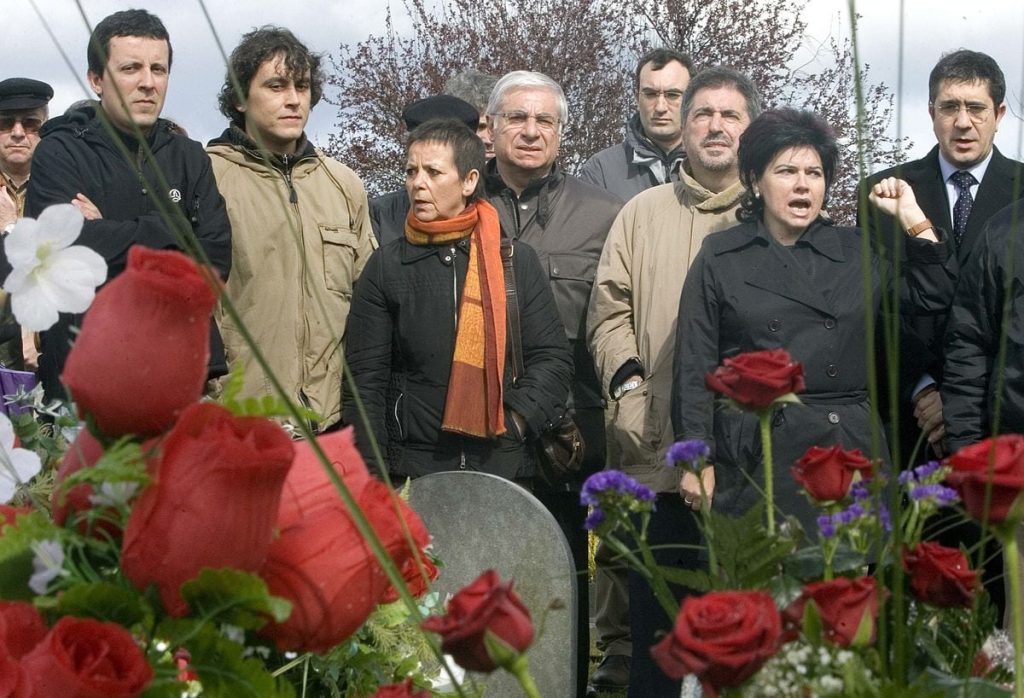Josu Elespe Pelaz, whose father Froilan was murdered by ETA 23 years ago, reflects on the changes that have occurred since the terrorist group’s definitive cessation of violence in 2011. He recalls the atmosphere of fear and suspicion that permeated society during the years when ETA was active, with 10,000 people potentially at risk of being targeted. People lived in constant fear, checking their cars for bombs, avoiding certain areas, and refraining from expressing opinions contrary to the use of violence. This era of aggression and fear has thankfully passed, and today people can live without the shadow of armed groups looming over them.
The surrender of ETA in 2011 marked a turning point in the history of the Basque Country. The leftist nationalist group realized that continuing violence was not sustainable and opted for a purely political approach. This decision, though forced and selfish, was driven by a desire for survival. The subsequent years saw the gradual normalization of society, with the eradication of terrorism-related activities and the easing of everyday tensions. This new era, characterized by freedom of expression and absence of violence, represents a significant improvement in the lives of Basque citizens.
Despite occasional remnants of ETA’s past actions resurfacing, the overall atmosphere in the Basque Country has changed for the better. The leftist nationalist movement, once associated with violence, has reinvented itself as a mainstream political party engaging in social reforms and collaborating with the Spanish government. The focus is now on fostering peaceful coexistence and addressing past grievances in a nuanced and ambiguous manner. While some may criticize the lack of explicit condemnation of ETA’s actions, the younger generations are encouraged to move forward without dwelling on the past.
The process of reconciliation and memory is ongoing, with efforts to acknowledge the pain and suffering of all involved parties. It is crucial for the leftist nationalist movement to unequivocally condemn ETA’s terrorism and recognize the ethical wrongdoing of their past actions. By addressing these issues openly and definitively, a new chapter of healing and progress can be initiated for the benefit of future generations. Language and words play a key role in this process, as clarity and sincerity are essential for genuine reconciliation and understanding.
Josu Elespe Pelaz emphasizes the importance of moving forward and letting go of resentments and grudges. Despite the tragic loss of his father to terrorism, he and his family have chosen to focus on happiness and positivity, leaving behind the hatred and bitterness that could have consumed them. The Basque society is evolving and adapting to a new era of peace and progress, and it is crucial to confront the past with honesty and compassion in order to build a better future for all. The journey towards reconciliation may be challenging, but it is essential for the healing and unity of the Basque community.
In conclusion, the transformation of the Basque Country post-ETA era signifies a shift towards peace and coexistence. The leftist nationalist movement has rebranded itself as a conventional political party, leaving behind its violent past. While there are still unresolved issues and lingering tensions, the overall trajectory is towards a more harmonious and inclusive society. Josu Elespe Pelaz’s personal reflections serve as a reminder of the importance of forgiveness, understanding, and reconciliation in moving forward from the dark chapter of terrorism that plagued the region for decades.















